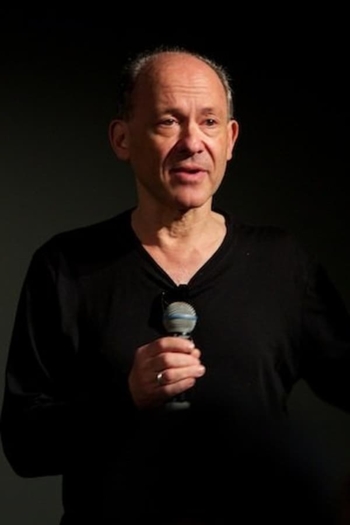
Peter Gidal
1946 (79 лет)His films have been screened nationally and internationally, including the Tate Gallery, the Hayward Gallery, and yearly since 1969 at the Edinburgh Film Festival and the National Film Theatre. Gidal has had retrospectives of his films at the Institute of Contemporary Arts in 1983, Centre George Pompidou, Beaubourg, Paris, 1996, amongst others. International screenings include several each at the Museum of Modern Art, New York, the Royal Belgium Film Archive and Cinematheque, Documenta, Arte Inglesi Oggi, X-Screen, etc. He is the recipient of the Prix de la Recherche, Toulon 1974.
Gidal is renowned as a writer and theorist, in particular for his highly influential publication 'Structural Film Anthology' (BFI 1976), other books include 'Andy Warhol: Films and Paintings' (Studio Vista, 1971, Da Capo NY reprint. 1991) and 'Materialist Film' (Routledge, 1988). Gidal's writings have been published extensively in journals including Studio International, Screen, October and Undercut. He is also known for his research and writings on Samuel Beckett, including 'Understanding Beckett: Monologue and Gesture' (Macmillan, 1986).
Upside Down Feature
Peter Gidal
Peter Gidal's 'Upside Down Feature' is one of the most important films to have been made in this country. It makes a complex and original foray into the nature of film, and, by extension, confronts its audience with a thorough reappraisal of its ways of dealing with film. I found the film exhilarating, but it's unfortunately necessary to add a rider that if you're unused to this type of film, expecting anything remotely similar to what the Big Boys from Wardour St dish you up. then you're in for a major piece of culture-shock which could mean anger, frustration and resentment.
Upside Down Feature
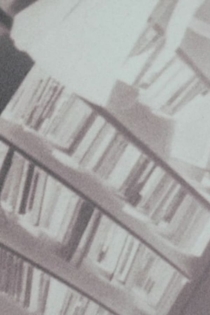
Assumption
Peter Gidal
Assumption is a virtuosic personal tribute, a glimpse at history and a celebration of independent film culture. Gidal's short film was assembled round a recording of the voice of Mary Pat Leece, who worked at the London Filmmakers' Co-op in the mid-1970s, and later became a much loved lecturer at St Martins School of Art. She died suddenly in 1997. The film's rapid-fire montage of images and sounds encapsulates her politics, her Catholicism and her intellectual passion.
Assumption

Hall
Peter Gidal
Demystified reaction by the viewer to a demystified situation; a cut in space and an interruption of duration, through (obvious) jumpcut editing within a strictly defined space. Manipulation of response and awareness thereof: through repetition and duration of image. Film situation as structured, as recorrective mechanism.
Hall
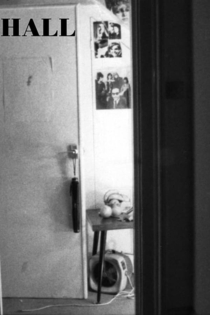
Close Up
Peter Gidal
Close Up is a provocative and potentially dangerous pulling together of two opposing aspects of film form - namely, a 'documentartist' soundtrack comprising interview material with Nicaraguan revolutionaries on the subject of art, propaganda and imperialism, and an image track of much beauty, veering toward the abstract as the camera moves ceaselessly over the objects in the a room, or those represented in the 17 blown up photographs. - Michael O'Pray
Close Up
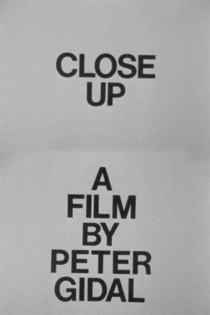
Clouds
Peter Gidal
Clouds 1969 by the British filmmaker Peter Gidal is a film comprised of ten minutes of looped footage of the sky, shot with a handheld camera using a zoom to achieve close-up images. Aside from the amorphous shapes of the clouds, the only forms to appear in the film are an aeroplane flying overhead and the side of a building, and these only as fleeting glimpses. The formless image of the sky and the repetition of the footage on a loop prevent any clear narrative development within the film. The minimal soundtrack consists of a sustained oscillating sine wave, consistently audible throughout the film without progression or climax. The work is shown as a projection and was not produced in an edition. The subject of the film can be said to be the material qualities of film itself: the grain, the light, the shadow and inconsistencies in the print.
Clouds

Condition of Illusion
Peter Gidal
The practice of Structural/Materialist Film is defined in...process, construction, displaced reflexively...not displaced uniformly into the pattern of a narrative bound up for the stable subject-centred image. Structural/Materialist film has no place for the look, ceaselessly displaced, outphased, a problem of seeing, it is anti-voyeuristic.
Condition of Illusion
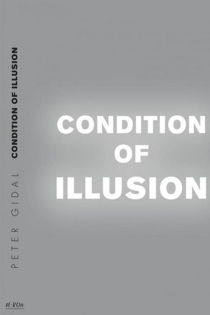
Flare Out
Peter Gidal
Sound: unrecognition unidentified, in time, you hear? Image: recognition identified, out of time in time; not not knowing the unknown but not knowing the known, no trace of 'no trace of any thing'. E.g. grain: is grain silver, black & white, or colour? Is silver black & white or colour? You see? - P.G. Feb 1992.
Flare Out
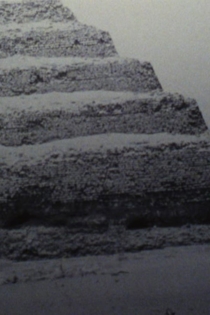
8mm Film Notes on 16mm
Peter Gidal
Structuralist film collage consisting of 8mm film "notes" printed directly on 16mm stock. The images include people and landscapes and the technical difference between the two film formats are emphasised by the presence of perforations, Kodak company marking, spacing, and leader.
8mm Film Notes on 16mm
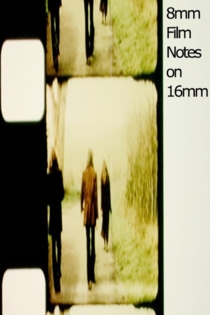
Denials
Peter Gidal
Hopefully learning the lessons of Close Up, the attempt was to construct the discrete form the (seemingly) continuous... so that, mainly retrospectively (yet during viewing) sequences present themselves as fragment-conglomorates. Therefrom might come questions of 'natural representations'... Filmic assumptions of evidence lacking, desired voyeurist pleasures could be turned into thought. Realism of another kind.
Denials
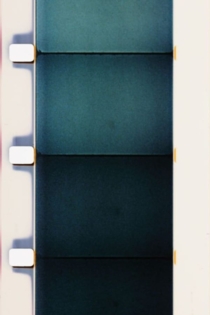
Bedroom
Peter Gidal
The most inclusive so far of my film preoccupations; zooming panning focussing to constantly redefine reality and the process of seeing/filming...also; demystification of the subject/object relationship and an attempt to create awareness of manipulation, rather than deny its filmic existence. A structured film in pre and post filming conceptualisation. The situation within the film is the process of making the film as such; the technical events of the filmmaking process are the film experience.
Bedroom

Volcano
Peter Gidal
Volcano, half hour, silent, shot on 16mm on a volcano in Hawaii, the film attempts to deal with those questions of representation that persist as problematic, for me, for the basic questions of aesthetics, what it is to view, how to view the unknown as to view the known is not possibly a viewing. The question of recognition, the impossibility of recognition or, better said, the impossibility o f a viewer viewing at all if it is predicated up on recognition... at that moment, you the viewer I the viewer am no longer part of a process, a material however metaphysical or not process of making meaning through the conflicts of perception of something...
Volcano
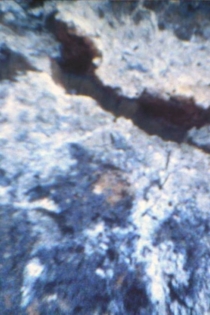
Film Print
Peter Gidal
The film deals with levels of reproduction. The repetitious camera movements over successive photographs are intended to function as distancing devices relatable to mechanical repetitions such as film loops. The 'subject' of the film is the material operation or, rather, it is a film in its own right and an explication of the mechanisms and technique inherent in its making. It is not a documentary of those mechanisms and techniques. Film as anonymous production, wherein (exhaustively) certain techniques are utilized, does combat with film that represents the (absent) subject, the filmmaker (forever repressed ever-present, ever-represented). Film as presentation, not re-presentation.
Film Print
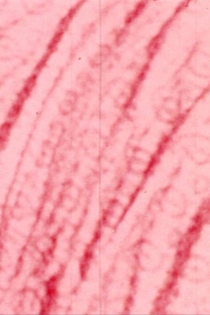
Fourth Wall
Peter Gidal
The film attempts to construct a space (as all films do), to construct a time (as all films do), to construct a process (as all films do) of and for viewing, of and for the viewer to constantly re-process, re-memorate, re-produce it (him/her) self in attempted (but impossible) arrestation. Thus the impossibility, through such a practice as this film, 4th Wall, of a seamlessness, a linear narrative flow, a pleasure of the sort so sought for as in its delirium it reestablishes in all its power the ideology of meaning making. The secure place for the finding of meaning in representation is that secure place: of sexist power, of the ideology of transparency, meaning/consumption in the guise of 'meaning making', the catatonic hysterical statis of/for the viewer, given more and more as the 'position of the subject', etc, a new ideology of freedom, which must be countered (again, a defence) with another ideology; this.
Fourth Wall
